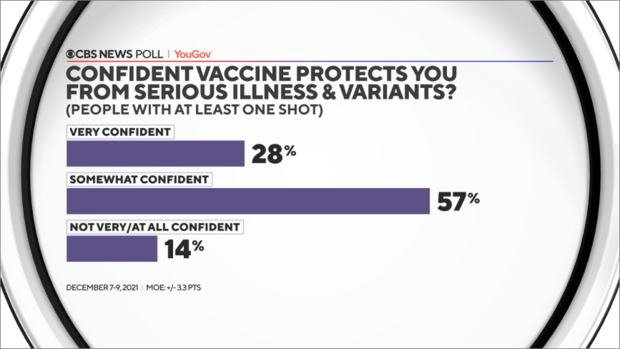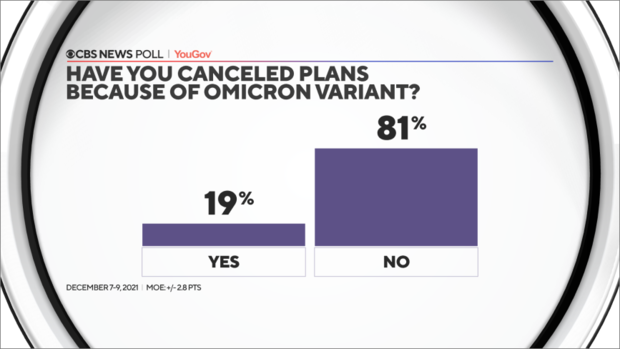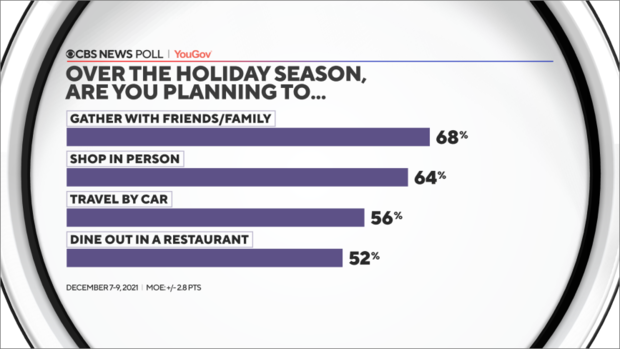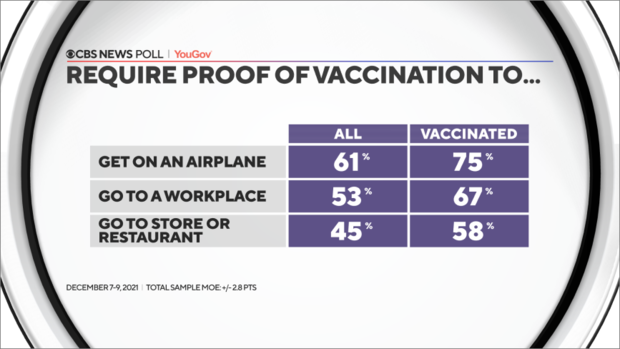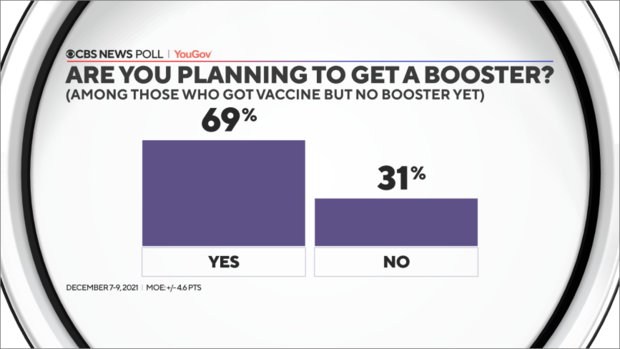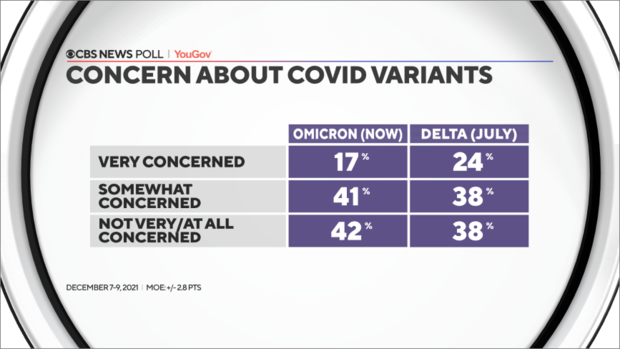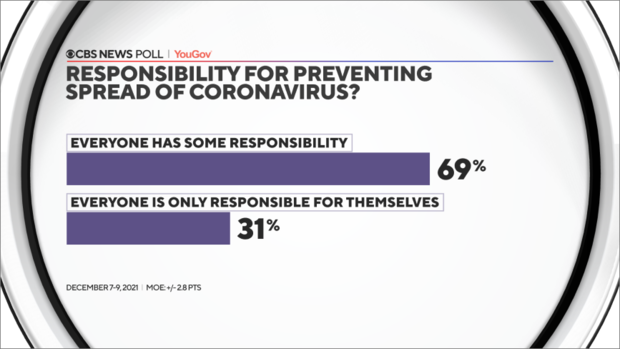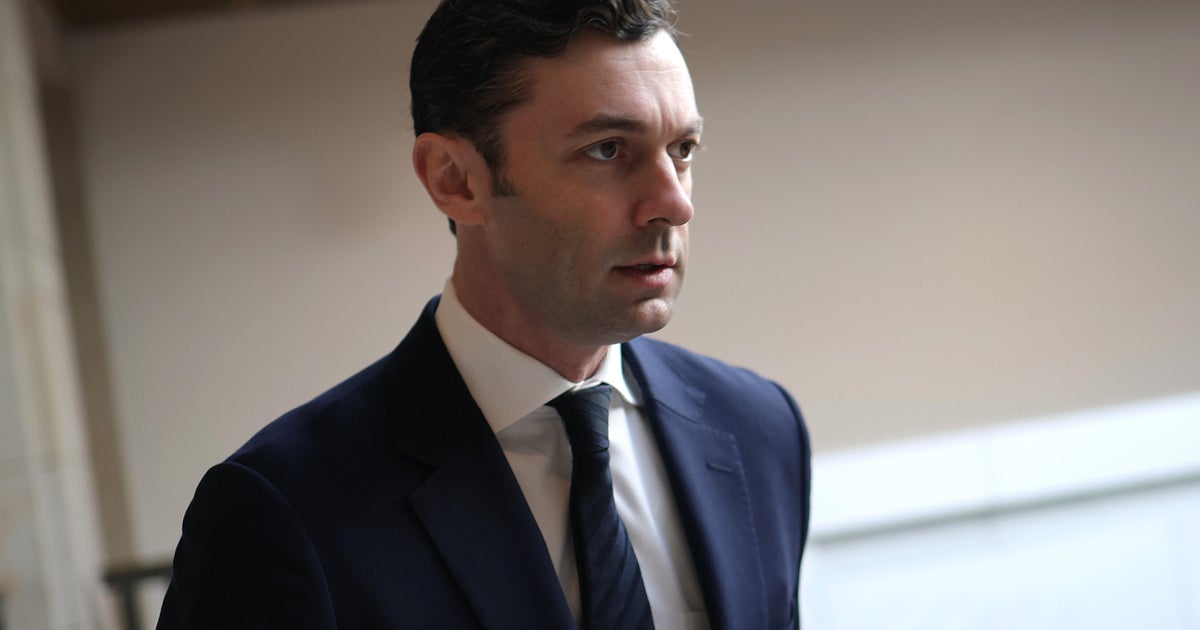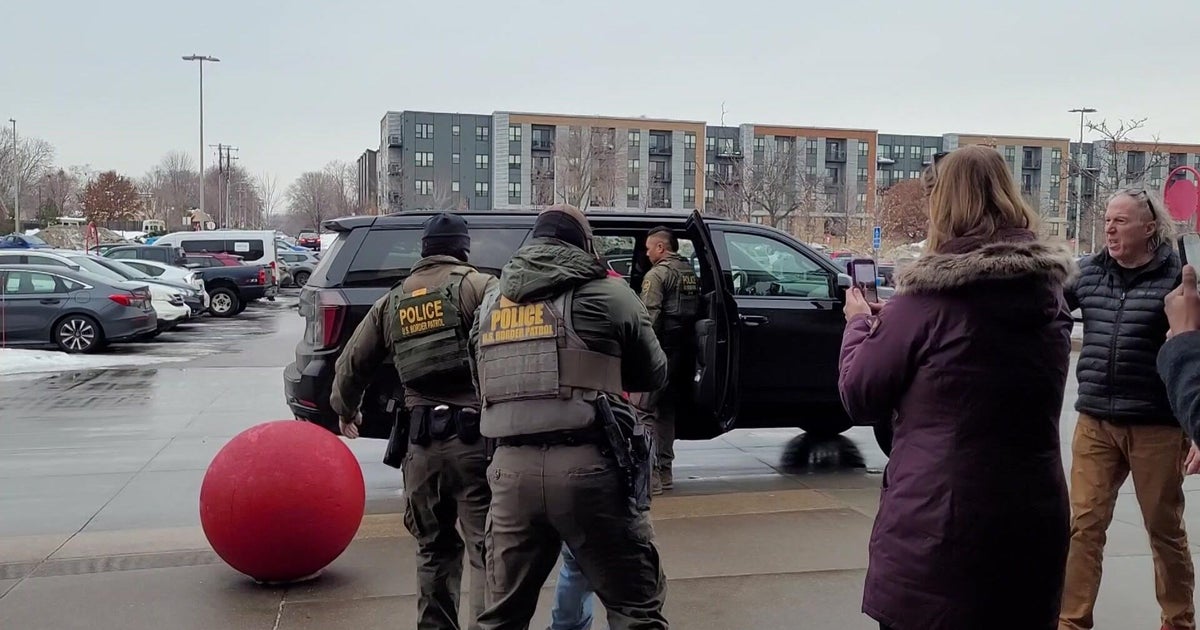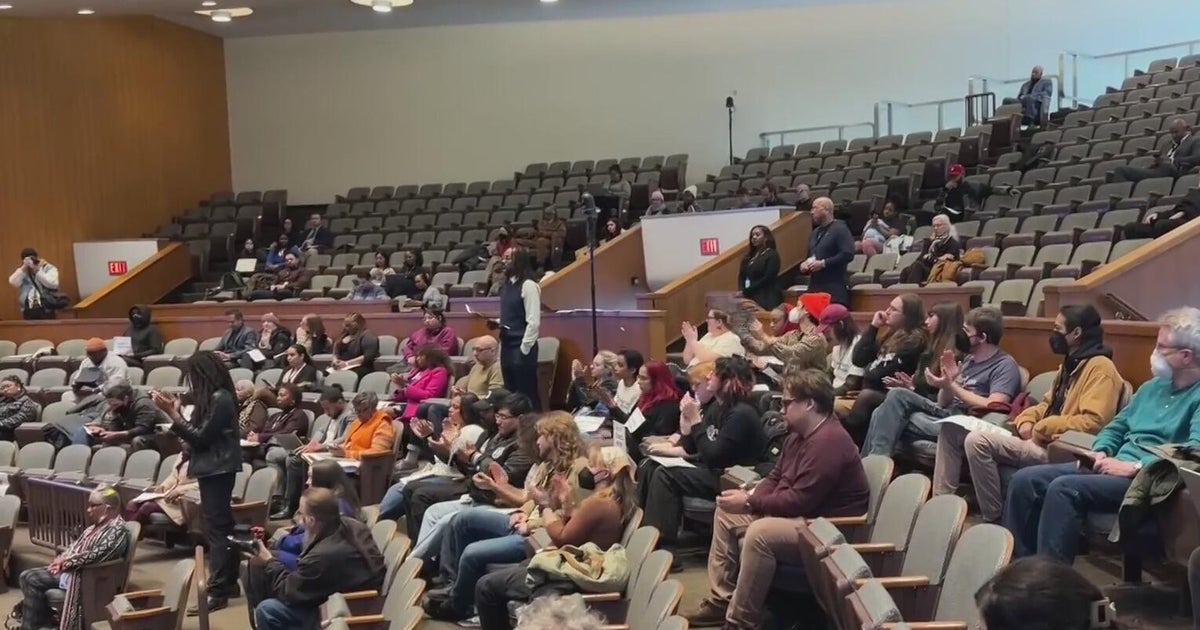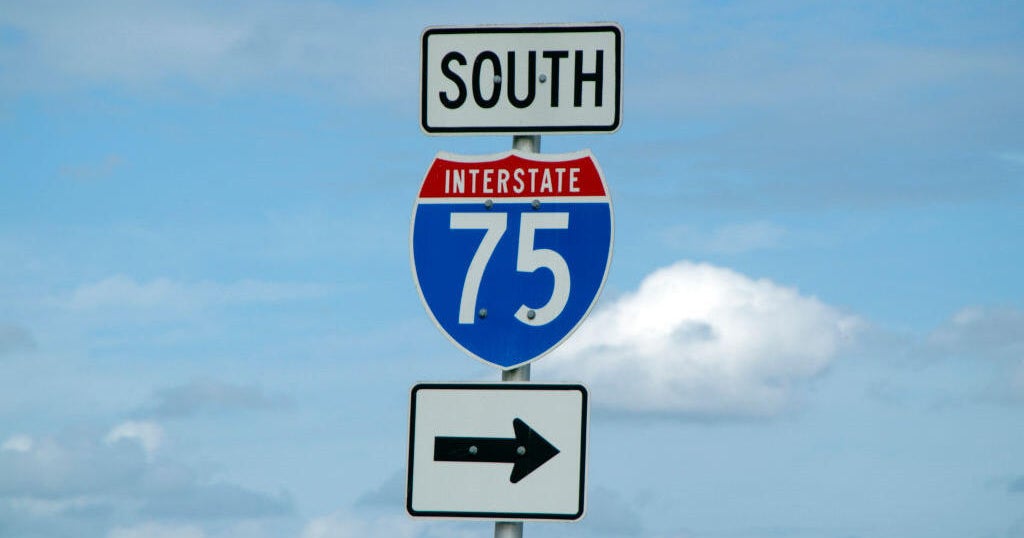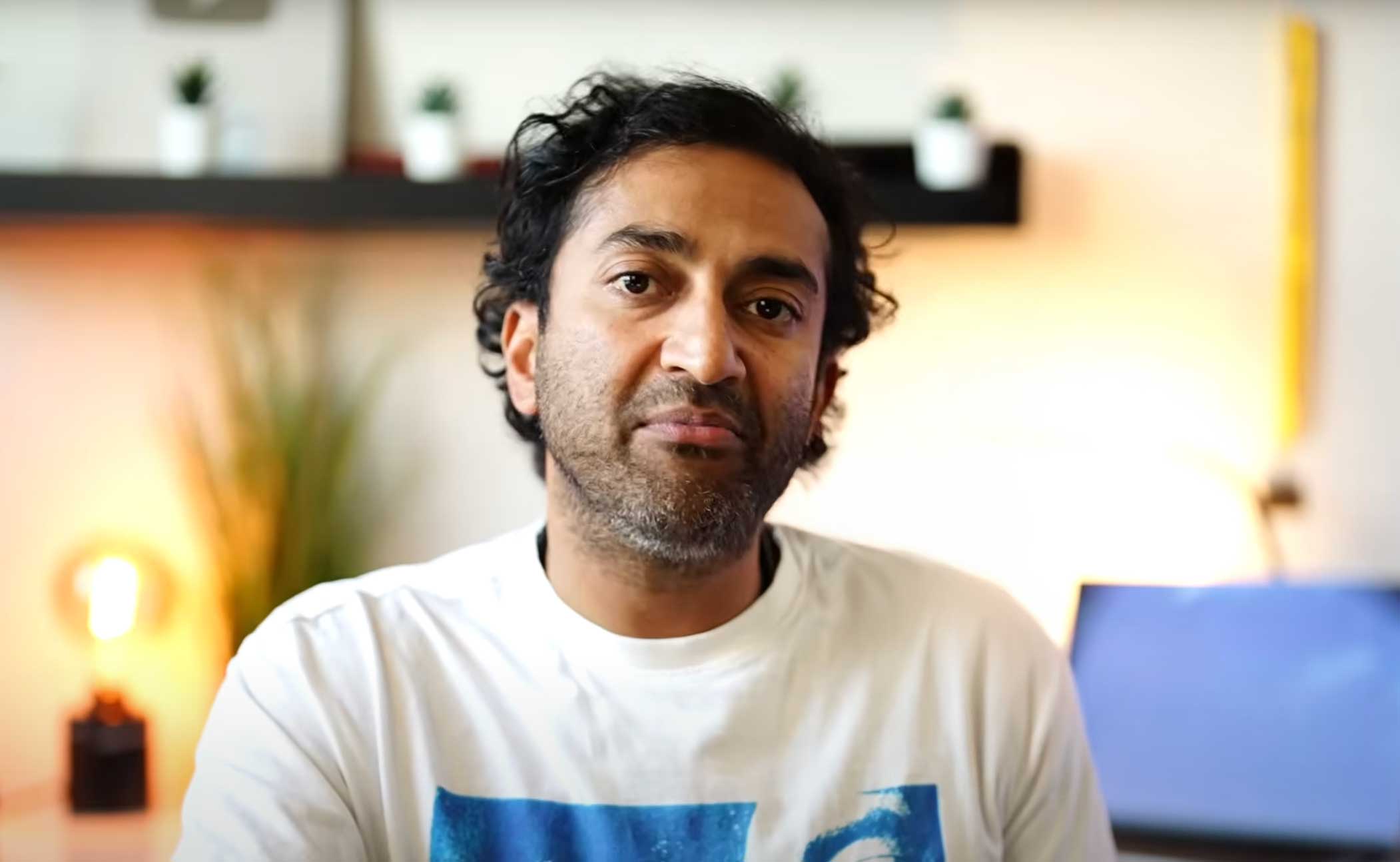Americans plan social holiday season despite Omicron, as most vaccinated feel protected — CBS News poll
Omicron isn't causing Americans to cancel plans this holiday season, which looks to be a social one, in part because the vaccinated are at least somewhat confident they're protected from the virus and its variants. That doesn't mean they're shrugging off the threat, though, but rather that they believe there are ways to mitigate it.
It's the vaccinated, in particular, who want to see proof of vaccination required for things people might do, like getting on planes and entering public venues. And they overwhelmingly feel everyone shares a responsibility to help stop the spread of the virus.
Reaction to Omicron looks somewhat similar to the reaction to the Delta variant last summer, albeit with fewer now very concerned, and it breaks along much the same attitudinal lines we've seen through the pandemic. For most, along with concern comes action: they tend to get vaccinations and are more accepting of public health measures. And then a relatively smaller group of Americans who say they aren't concerned about the Omicron variant — just as they've been less concerned about the virus, generally — are also less apt to be vaccinated and tend to oppose those wider efforts.
Most report planning to gather with friends and family, shop and travel in some way, among other activities.
Most Americans support the idea of proof of vaccination required for air travel and for the workplace, and those numbers rise among the vaccinated, most of whom would also look for proof required at stores and venues too. The unvaccinated, perhaps unsurprisingly, oppose these.
With boosters being encouraged against the variant, most vaccinated people — about seven in 10 — say they plan to get boosted if they aren't already. Among those who are very concerned about Omicron but haven't gotten a booster, that rises to nearly nine in 10.
In all, Americans collectively show a slightly less intense level of concern over Omicron today than they did for Delta last summer.
Measures to fight the spread, like mask-wearing and testing requirements, seem to elicit a collective sigh now as just a fact of life: for most, they're neither encouraging in their effectiveness, nor frustrating in their persistence.
More generally in terms of approach to fighting the pandemic, a large majority of Americans feels everyone shares some responsibility now for helping to prevent the spread of the virus.
This sentiment is expressed by most women and men alike, and by most across age, race, and education levels. It does divide Republicans, though, as the GOP splits along vaccination lines, and unvaccinated Republicans are inclined to feel people are only responsible for protecting themselves.
Today, most feel medical and health professionals and the CDC are describing the Omicron threat appropriately. But 45% feel the national media are overreacting.
This CBS News/YouGov survey was conducted with a nationally representative sample of 1,731 U.S. adult residents interviewed between December 7-9, 2021. This sample was weighted according to gender, age, race, and education based on the U.S. Census American Community Survey, and the U.S. Census Current Population Survey, as well as 2020 presidential vote. The margin of error is ±2.8 points.
